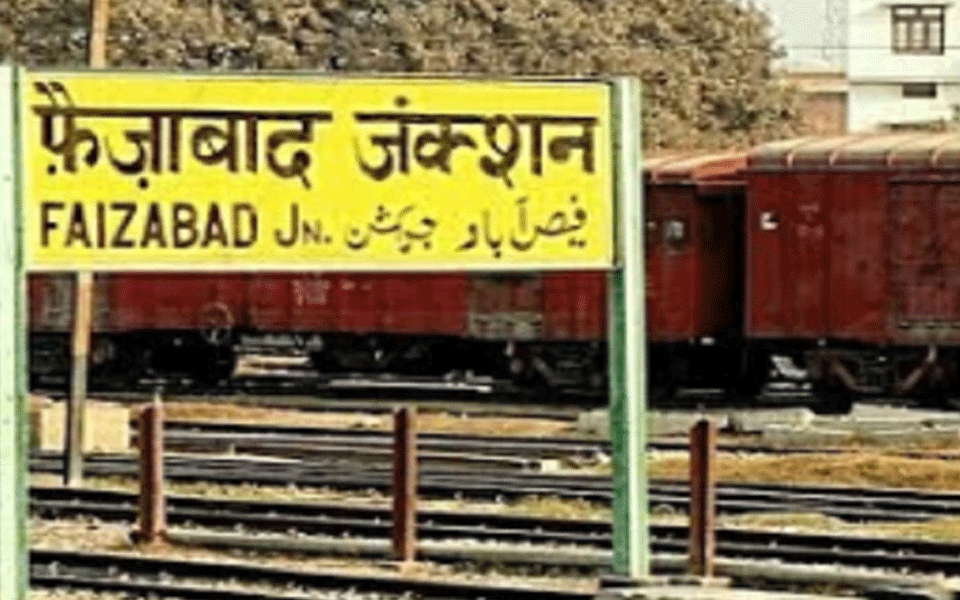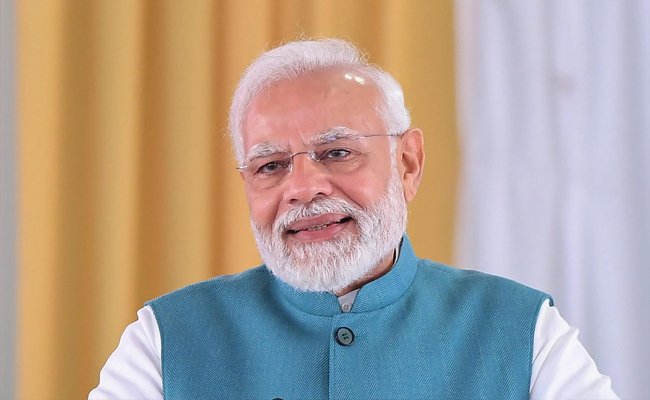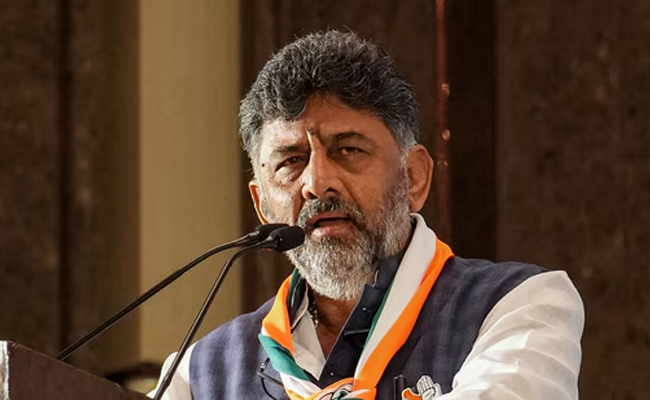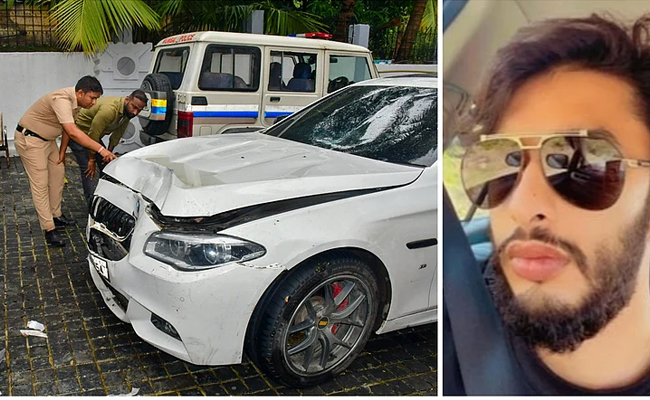Faizabad (UP) (PTI): Old signboards at platforms painted over, trilingual signages on top of the station's facade summarily removed and a banner bearing its new nomenclature 'Ayodhya Cantt' casually hung on its porch front - Faizabad Junction is in a state of transition.
The recent move of authorities to rename the 19th Century station, three years after Faizabad district was rechristened to Ayodhya, however, has drawn a mixed response from historians and local residents, many of whom feel it will "erase the identity of this historic city" and "create confusion".
Another section, though, welcomed the Uttar Pradesh government's decision, with some saying the name Ayodhya should be used everywhere in public places, as "it is Bhagwan Ram Ki Nagari (city of Lord Ram)".
Sadhu Ram, 55, a rickshaw-puller, who usually parks his rickshaw in front of the iconic station building, said, "The change of name was not necessary. There is already an Ayodhya station. Passengers will face confusion now."
Ram, who moved to Faizabad from Jalalabad in Shahjehanpur district when he was 12, said he was now in two minds - whether to call it "Faizabad" or "Ayodhya Cantt" while ferrying his passengers.
Rajesh Kumar, 30, who has been working as a coolie at the Faizabad Junction since 2008, is equally perplexed after the renaming of the station that is said to have been opened in 1874.
He points to the engraving on his brass badge: 'Licenced Porter N.R. 77 Faizabad' and then motions towards the temporary banner at the station's porch which carries the new name 'Ayodhya Cantt' in bold black fonts and in four languages-- Hindi, Sanskrit, English and Urdu.
"It will create a lot of confusion as there is Ayodhya City station already, about 10 km from here. Passengers coming to Faizabad or Ayodhya for the first time may end up getting down at the wrong destination," he said.
Faizabad city is located about seven km from its twin town Ayodhya in Ayodhya district (earlier Faizabad district), and the Faizabad station is a major railway junction, which comes under the Northern Railway zone and falls in the Lucknow-Varanasi section. Ayodhya town is located about 120 km from state capital Lucknow.
The trilingual signages -- English, Hindi and Urdu -- which earlier stood on top of the station building's facade were removed recently after railway authorities issued an order on its renaming.
On the day of Diwali, old station signboards were also painted over, replacing 'Faizabad Junction' (station code FD) with 'Ayodhya Cantt' (station code AYC).
Ankit Pandey, 25, a tourist guide based in Ayodhya town, who takes pilgrims to Ramjanmabhoomi site, Hanuman Garhi and Kanak Bhawan in the temple town, said, "Renaming was necessary. Faizabad name cannot remain as the entire district is Ayodhya now, and Ayodhya is 'Prabhu Shri Ram ki Nagari'".
While the opposition has dubbed the move as an attempt to play with Hindu sentiments for political benefits, Chief Minister Yogi Adityanath has justified the renaming, saying it is part of the efforts to "restore the rich historical and cultural identity" of the place.
Manzar Mehdi, historian and editor of a Faizabad-based bilingual publication 'Aap ki Taqat', which promotes communal harmony with the slogan 'Hindu-Muslim do bhai, Hindi-Urdu do behen', feels dejected over the renaming.
He alleged it was all "driven by dirty politics" and an "attempt to erase the very identity of Faizabad".
He, however, points out that many shops and other establishments in Chawk and other prominent areas continue to use the old name 'Faizabad' on their boards or 'Faizabad, Ayodhya' referring to both the old city name and the new district name.
"Faizabad was the first capital of the Nawabs of Awadh, saw a period of glory and has a rich architectural and literary heritage. I revere Ayodhya as a holy place, but my Faizabad has its own identity. Faizabad will neither be erased or replaced from my office board as long as I am alive," he said.
The BJP government had also renamed Allahabad as Prayagraj and Mughalsarai Railway Junction as Pandit Deen Dayal Upadhyay Junction in 2018. Mehdi fears that more cities with Islamic names in Uttar Pradesh might get renamed.
Delhi-based historian and author Rana Safvi said Ayodhya and Faizabad have always been known as twin towns and are a symbol of India's "Ganga-Jamuni tahzeeb (syncretic culture)".
"It's not that Ayodhya was the old name of Faizabad. These are two different cities with different cultures and have co-existed for centuries. Now, they don't want that co-existence. They can change names of a place or a station, but I feel, Faizabad has been etched in the hearts of the people," she said.
Let the Truth be known. If you read VB and like VB, please be a VB Supporter and Help us deliver the Truth to one and all.
Gorakhpur (PTI): A hospital employee was booked for allegedly sexually assaulting a woman in the pretext of an ultrasound test here in the district women's hospital, police said on Saturday.
According to the complaint, the woman, a resident of the Gulriha area, visited the district women's hospital on Thursday morning for an ultrasound test.
She was directed to a room, where Abhimanyu Gupta was conducting ultrasounds. When her turn came, the accused allegedly stared at her and told her to remove all her clothes, claiming it was necessary for the test and that a massage would also be required, she said.
ALSO READ: UP: Girl kidnapped, raped multiple times over 25 days; accused held
The woman alleged that once she complied, the accused began making obscene advances and tried to force himself on her. When she screamed, he allegedly gagged her, abused her and threatened to kill her before pushing her out of the room.
She said her complaints within the hospital went unheard, forcing her to approach the police.
Taking cognisance of the complaint, the hospital administration constituted a three-member inquiry committee, officials said.
Senior consultant (paediatrics) Dr Jay Kumar said, "The woman has levelled serious allegations against a staff member. Senior officials have been informed, and a departmental inquiry is underway. Strict action will be taken if the charges are proved."
Kotwali Station House Officer Chatrapal Singh said a case has been registered, and efforts are on to nab the accused.





